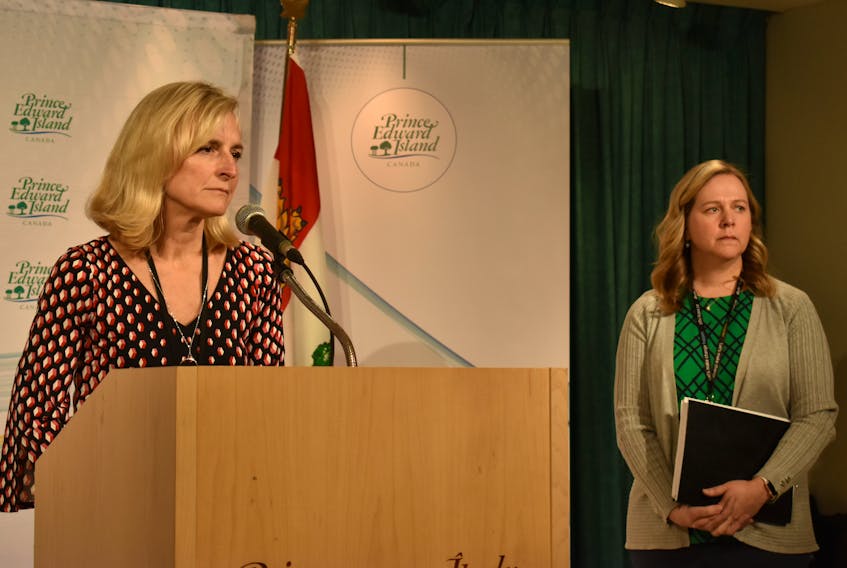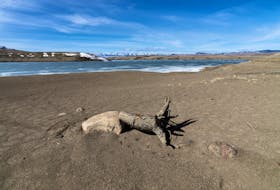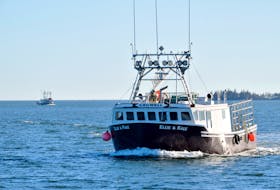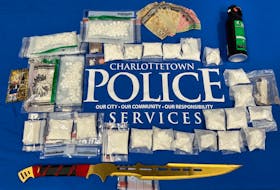CHARLOTTETOWN, P.E.I. — “What a difference a year makes,” said Premier Dennis King on March 9.
On March 16, 2020, King declared a state of public health emergency, in response to the COVID-19 pandemic.
Today, the province is still under the state of emergency and King reflected on the last year at the regular Tuesday news briefing on March 9.
“We had no idea how disruptive it would be, how it would disrupt our lives … We’re in a much better place today than we were one year ago.”
King was referring to the province’s capacity to respond to the COVID-19 pandemic with testing and provincewide vaccinations set to roll out.
However, not everyone is feeling King’s sentiment that, one year later, “we’re the better for it.”
Tourism operator Matthew Jelley runs several amusements in the Cavendish resort municipality and he’s not looking back fondly on the year that was 2020.
In June, Jelley was preparing to open his attractions – which include Shining Waters Family Fun Park and Sandspit Amusements – for business in a pandemic.
The Guardian caught up to Jelley again this week.
“As we expected, the COVID-19 had a devastating impact on our business, both from the capacity constraints but also the restrictions on visitation from outside of Atlantic Canada as well,” said Jelley, referring to the limit on the number of people allowed into the park at one time.

Not business as usual
Even with the Atlantic Canada travel bubble in place from July 3 to Nov. 24, revenue for his amusement parks was down 80 per cent.
“For us, the capacity restraints were a major factor in our loss. For some other businesses, if they were dependent on cruise ship traffic, something like Green Gables House, they were down even more. But then some other businesses like campgrounds or cottages wouldn’t have been down quite as severely because they didn’t face the same restrictions on capacity.”
For Jelley, there weren’t many silver linings to be found in this pandemic season.
“If given the choice we’d be happy to have done the summer without going through the experience, but having gone through it, we were certainly pleased with the response of our staff, and later our customers, in rising to the challenge. So that is something we are grateful for,” he said.
“But, I would have been happy not to find that out by having to go through a summer like last year.”
Jelley has applied for the programs available to help businesses, but he is still in “survival mode”.
“We’re currently doing the best we can to try to prepare for the upcoming season where there’s obviously still a lot of uncertainty as things continue to develop,” said Jelley.
Bruce MacDougall, president of the Federation of P.E.I. Municipalities said the full, long-term effects of the pandemic for cities and towns are not yet known. However, larger municipalities have been hit harder as they lost revenue from sources like parking.
“We can’t have concerts, we can’t have sporting events and conventions, everything like that is cancelled. That’s where you generate revenue,” said MacDougall. “If this continues in the long term, it’s probably going to have an effect on people’s tax rates. It has to.”
Global pandemic
March 9 was the one-year anniversary of chief public health officer Dr. Heather Morrison’s first COVID-19 briefing.
The briefings have since become a touchstone of Island life and end with Morrison’s gentle sign-off: “Please be patient, please be kind.”
“We remember that first case and I think we were all nervous and anxious about what would lie ahead with COVID-19,” said Morrison on Tuesday. “We did not know much about the virus and managing this type of pandemic. But we did know it was going to be different and difficult and I don’t think we could have anticipated how long it would last.”
The game plan was simple, said Morrison.
“Keep COVID-19 out of the province and when there are cases, to work hard to contain the virus and limit transmission.”
Morison credited the high level of individual compliance with why the province has done so well, while reminding listeners to stay vigilant.
“Living through a global pandemic has had a profound impact on us all,” said Morrison.
“One year later, we can be very proud of how we have come together as a province to manage and live with COVID-19.”
Staying safe

Keeping the health system safe for patients and staff has been the task of Marion Dowling, the chief nursing and professional practice officer for the health authority. She and her team of nurses have played a major role in communicating pandemic precautions to Islanders.
She said all front-line health-care staff have done “excellent, tireless work.”
“They deserve the gratitude of all Islanders and definitely have my gratitude for what they have done over the past year.”
Dowling has assured Islanders that it is safe to visit family doctors, she announced the first vaccine clinic and she has been instrumental in keeping the province’s residents safe from the virus.
One of the more challenging aspects has been protecting long-term-care residents, she said.
“We feel fortunate that to this point we’ve had no outbreaks in our long-term-care homes and that’s been a contribution of everyone,” she said.
“We know, at times, that guidance was quite difficult. Limiting visitors and the partners in care to those homes, to our other patients in hospital and our palliative care centre was a big challenge to us as a system. We’re not used to that, we’re very welcoming to those people when individuals are living in those homes or receiving care for other reasons in our facilities, and that was a challenge for our staff to put limitations on that.”
COVID-19's timeline in P.E.I.
Always learning
In the first weeks and months of the COVID-19 pandemic, the health authority faced a steep learning curve as the virus, officially named SARS-CoV-2, arrived on P.E.I.
Dowling said it was the people who came together in 2020 to plan the Island’s response to COVID-19 who “carried us through”.
“I don’t think we really knew all the challenges we would face – one of the biggest ones being the continual changing information that was coming out around the pandemic and the virus itself and the guidance. So, we’ve tried to keep up with that; Islanders and the health system stepped up and we’ve really done well overall.”
Early on, important services like surgeries and mental health and addictions programs were curtailed, and two senior home units were set aside for surge capacity as the health-care system adapted to the pandemic and what it would bring.
“You have to prepare for everything,” said Dowling. “We were seeing what the experience was of patients who were contracting the virus and what their significant health issues were and preparing for that surge – at the same time, working with our plans.”
Adaptable staff
Employees all over the health-care system responded, said Dowling.
“We have a lot of staff who have really stepped up to do really different tasks and roles and lead our different teams like our testing clinics, our cough and fever clinics and our lab team. They’ve just really done a fantastic job of operationalizing things, putting plans in place.”
Staff at the laboratory who processed the more than 111,000 COVID-19 tests, were a major part of the pandemic response as well, said Dowling.
“The science behind the different types of tests, getting the equipment in and the supplies and the learnings in place, and the systems and their operating procedures to do the volume of tests that we are now able to do has been a huge (accomplishment). They deserve a huge amount of credit for what they’ve been able to put in place over the year.”
"Look what we can do when we all collaborate and co-operate and have the same goal in mind." - Marion Dowling
Together we’re better
Dowling said what has struck her about the pandemic response has been the teamwork.
“I’ve seen a lot of collaboration across our system in health care and across government which has led to our ability to get through this pandemic without those deaths and hospitalizations because we have really come together. Everybody’s had the same goal of getting through this, providing the information as best we can, making changes when we need to.
“The support we’ve had from IT shared services, from transportation and infrastructure, from government centrally across any department – when we’ve called upon them to help, they’ve all been part of our team. It’s been a huge coming together. I guess that’s the biggest thing I can say: ‘Look what we can do when we all collaborate and co-operate and have the same goal in mind.’
“We’ve done amazing things over the year. It has not been easy, it’s been difficult, but we have done it and we have done it together as a collective. And that’s really what’s gotten us through.”









